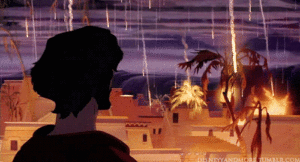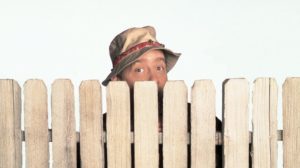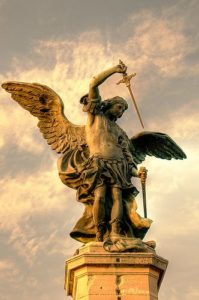
There is a stereotype in my profession for which one must always be on the lookout: the malingering worker. It is a very careful process to balance the nuances of stories and symptoms and needs and wants that intertwine the world of Workers’ Compensation claims. The line between fear and deception is sometimes all but indiscernible. Without fail, there will come a time when an adjuster or employer or sometimes even the optimistic physical therapist will realize that some lazy denomination of persons will exaggerate an injury in order to stay at home.
But this number, despite what many think, is quite low. Most people become intolerably bored when sitting at home. Aristotle famously called man a “political animal.” Man craves community. (Yes, even the introverts need social stimulation!) In fact, I find it much more common for a patient to lie to me about feeling fine in an effort to return to work than about feeling too ill for their occupation.
And yet, here we are in a season of quarantine, a season of shelter-in-place edicts and toilet paper hoarding and social distancing. I haven’t had this sort of angsty predicament since I was a child cooped up inside on a rainy day, destined for wild antics inspired by The Cat in the Hat or Alice in Wonderland or The Lion, the Witch, and the Wardrobe. Now it seems the idleness of home is unbearable for people. The distance feels suffocating, but the irony is that we have been distancing ourselves already for quite some time- it simply took a pandemic for us to finally realize it.
Some will say that the novel coronavirus plaguing the world right now is a punishment from the Almighty. Some suggest that the pagan worship of idols behind the walls of the Vatican is what spurred the wrath of God upon Italy. Others say that the epicenter of disease in New York is the Lord’s response to the horrific abortion agenda that has been promulgated there during the last number of years. Whether or not you believe that pandemics are a form of divine punishment, it is certain that they are permitted in the realm of Providence.

I find, as a health care professional, that I tread a very thin line between faith and epidemiology. To be sure, the Lord has used plague in the past to purge and punish mankind for its wickedness. We all know the story of the Egyptian plagues. (And we all likewise agree that The Prince of Egypt soundtrack is at the same time one of God’s greatest gifts to humanity.) It also brings to mind the epic imagery of Pope St Gregory the Great processing through the plague-riddled streets of Rome with an image of the Blessed Mother. The statue of St Michael the Archangel sheathing his sword that sits atop the Castel Sant’Angelo commemorates the vision of mercy the pope received at the end of this daring escapade.
We should know, too, that the Lord not only takes away but also gives. He has given us the intellect and resources to map the entirety of the human genome, incapacitate viruses, navigate galaxies, and compose symphonies. We have come a long way from the pestilent streets of the Black Death and have many more tools to fight disease. We have hospitals and tests and statistics and sanitizers and, yes, we also have quarantines.
The act of quarantining first began in the 14th century in an effort to protect port cities from plague. The word “quarantine” is derived from the Italian “quaranta giorri” meaning forty days. In this time, ships were required to sit at anchor for 40 days before finally being allowed to come ashore. This is very interesting because coronavirus has chosen to rear its head in the midst of the season of Lent, which we also call “Quadragesima.” Lent is the forty-day period that Christians spend in prayer, fasting, and almsgiving in preparation for the celebration of the Easter Triduum.
Again, whatever your beliefs are about illness and Providence, you have to admit that a pandemic during Lent is strangely poetic.
My neighborhood was hit by an F3 tornado only 5 months ago. I witnessed devastation, wreckage, and families crying over the loss of their homes. Now, after finally making some headway in terms of recovery, we are being asked to shelter in this place of half-hearted destruction. While Lent is usually about attempting to enter into a spiritual desert to reset and re-evaluate one’s soul, the sacrifices are usually small, the inconveniences trivial. But now this feels different, maybe because the desert is no longer solely a spiritual one. The desert is that of our own community; it is present in the very shelter that we call home.
“Preserve me, O God, for in thee I take refuge.” Psalm 16:1
Why is it that we have such a hard time “being?” We have filled our homes with screens and noise and distraction and now that we are restricted to our residences, it somehow seems unnerving, so unnerving in fact that we make frequent trips to the grocery store, buying up toilet paper and meat and excessive amounts of cleaning products. It’s quite possible that no one has hitherto been wiping their bottoms, washing their hands, or cooking a steak. Or perhaps we are scared; perhaps there is a fear of illness, or a fear of something else. Maybe we are deceiving ourselves.
The line between fear and deception is sometimes all but indiscernible.
Churches are closed and the sacraments seem so far away. The bishops encourage us to take heart and remain diligent. The Holy Father blessed the whole world while standing in the rain, holding up the Eucharist before an empty St. Peter’s square. And yet, so many of us are edging closer to despair. The desert is terrifying for us. But we must not lose hope. This is not a time of vacation but of vocation! There has never been a time riper for spiritual growth. We must not hide inside like a potato, flattening the incidence curve while incidentally fattening the curves of our corpuses. This is the moment for spiritual vigor.
Granted, it is difficult! How can we love our neighbor from 6 feet away? Shouldn’t we be storming the churches and marching on the streets and donning our sackcloth and ashes? Didn’t Jesus approach and heal those with leprosy all the time? Yes, Jesus loved the lepers, but he also knew that leprosy is not highly contagious. We must have a balance between faith and epidemiology. We must have an understanding of disease and an understanding of the one who reigns above disease. Just because we are moderating touch does not mean we are moderating love. Even the greatest words of wisdom can be offered from behind a fence.

We still must make an effort, even within the realms of our own boundaries. You see, faith without works is dead, but sometimes the work is to have faith. Maybe right now, the very best thing that you can do for your neighbor is to pray. Pray that your guardian angel flee to the aid of someone in spiritual crisis. Give money to your church or charitable organization or hospital. Seize those plenary indulgences and offer them for the soul of the person who will die in the next hour. Smile at your children. There is still work to do.
The word pandemic in Greek means “all people.” Whether or not the coronavirus will darken your doorstep in the coming months, you will certainly be touched by its aftershocks. But catching COVID-19 should not be something that we willingly or irresponsibly risk when we have the means to combat it. What we must do right now is get our priorities straight, avoid mortal sin, care for the souls of those in our reach, and pray for the souls of those that we cannot. The Lord is victorious in sickness and in health. This too shall pass. Though we cannot grace our home churches with our presences we can still let the Lord’s presence grace our homes. Let yourself be inconvenienced. Enter into the desert. Be not afraid. Let this be a time of re-“coop”-eration.
“In the wilderness, prepare the way of the Lord, make straight in the desert a highway for our God. Isaiah 40:3
